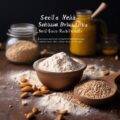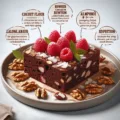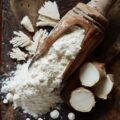Rediscovering Einkorn: The Ancient Grain with Modern Benefits
In our quest for healthier, more nutritious foods, we often find ourselves looking back to the wisdom of our ancestors. One such treasure from the past is einkorn, an ancient grain that’s making a comeback in today’s health-conscious world. Let’s explore the remarkable benefits of this “mother of all wheat” and how it can enrich our lives and nourish our bodies.
What is Einkorn and Why is it Special?
Einkorn, scientifically known as Triticum monococcum, is believed to be the oldest wheat known to scientists. It’s the only wheat that’s never been hybridized, maintaining its original genetic makeup for thousands of years. This purity gives einkorn unique properties that set it apart from modern wheat varieties:
- Higher protein content
- More essential fatty acids
- Abundant in carotenoids
- Rich in vitamins and minerals
- Lower in gluten
These characteristics make einkorn not just a nutritional powerhouse, but also potentially easier to digest for some people who struggle with modern wheat.
The Nutritional Bounty of Einkorn
Einkorn’s nutritional profile is truly impressive. Compared to modern wheat, it offers:
- 30% more protein
- 15% less starch
- Higher levels of essential fatty acids
- Lutein for eye health
- Significant amounts of B vitamins, especially thiamin
- Higher levels of minerals like zinc, iron, and magnesium
This rich nutrient density means that incorporating einkorn into your diet can contribute to overall health and wellbeing in numerous ways.
Einkorn and Digestive Wellness
One of the most intriguing aspects of einkorn is its potential benefits for digestive health. While it does contain gluten, the gluten in einkorn is different from that found in modern wheat. It’s weaker and potentially less irritating to the digestive system. Some people who have non-celiac gluten sensitivity report being able to tolerate einkorn better than conventional wheat.
Moreover, einkorn has a higher ratio of amylose to amylopectin in its starch composition. This means it may have a lower glycemic index, potentially making it a better choice for blood sugar management.
Cooking and Baking with Einkorn
Incorporating einkorn into your culinary repertoire can be a joyful experience. Its sweet, nutty flavor adds depth to a variety of dishes. Here are some ways to use einkorn:
- Substitute einkorn flour for wheat flour in baking recipes
- Use whole einkorn berries in soups and stews
- Create nutritious salads with cooked einkorn
- Make einkorn pasta for a hearty meal
Remember that einkorn flour absorbs less liquid than modern wheat flour, so you may need to adjust your recipes accordingly. The reward is worth the effort – delicious, nutritious foods that connect us to our culinary heritage.
Einkorn: A Sustainable Choice
Choosing einkorn isn’t just good for our health; it’s also a step towards more sustainable agriculture. Einkorn:
- Requires less water to grow
- Is naturally resistant to pests and diseases, reducing the need for pesticides
- Can thrive in poor soil conditions where other crops struggle
- Helps preserve genetic diversity in our food supply
By supporting the cultivation of einkorn, we’re not just nourishing ourselves, but also contributing to a healthier planet.
Frequently Asked Questions about Einkorn
1. Is einkorn gluten-free?
No, einkorn is not gluten-free. However, its gluten structure is different from modern wheat and some people with non-celiac gluten sensitivity find it more tolerable.
2. Where can I buy einkorn products?
Einkorn products are available in many health food stores, specialty grocery stores, and online retailers. Look for einkorn flour, whole berries, pasta, and bread.
3. How does einkorn taste compared to modern wheat?
Einkorn has a richer, nuttier flavor than modern wheat. Many people describe it as sweeter and more complex in taste.
4. Can I sprout einkorn grains?
Yes, einkorn grains can be sprouted. Sprouting can increase the availability of nutrients and make the grain even more digestible.
5. Is einkorn suitable for a low-carb diet?
While einkorn is still a grain and contains carbohydrates, its higher protein content and potentially lower glycemic index may make it a better choice for those watching their carb intake. However, it should still be consumed in moderation on a low-carb diet.
In conclusion, einkorn is more than just an ancient grain – it’s a bridge to our past and a path to a healthier future. By incorporating this nutritious, flavorful grain into our diets, we not only nourish our bodies but also connect with the rich tapestry of human agricultural history. Whether you’re seeking better nutrition, exploring new flavors, or looking for more sustainable food choices, einkorn offers a wealth of benefits worth discovering. Let’s embrace this gift from our ancestors and make it a part of our modern, health-conscious lives.









